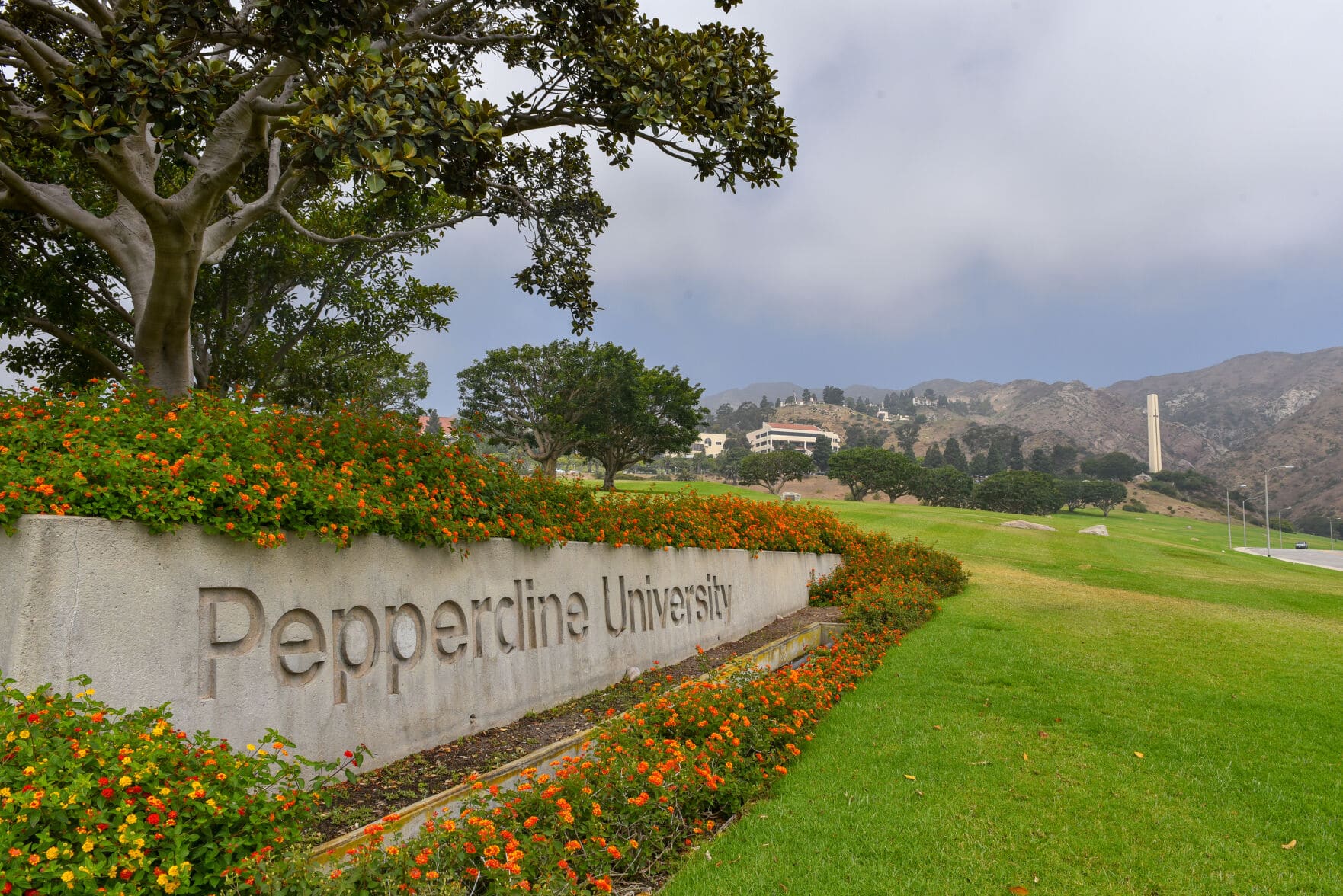Pete Peterson, dean of the Pepperdine University School of Public Policy (SPP), shared a Pepperdine-affiliated petition with subscribers to the right-wing news blog Conservative News on Oct. 12 against “leftist indoctrination” of U.S. students from curriculum that emphasizes ethnic studies, a move that has drawn criticism from elsewhere in the university community.
The petition stands against teaching “leftist curriculum” in schools and specifically opposes the New York Times’ The 1619 Project curriculum of “debunked, non-historical claims,” according to the School of Public Policy petition. Pepperdine administration was unaware of the petition prior to its release and has suspended the School of Public Policy’s involvement with the campaign, according to a statement from the university.
“There are dire consequences to allowing a liberal viewpoint to be forced on the next generation, and we’re only seeing the tip of the iceberg right now,” according to Peterson’s email from Conservative News.
The email
Peterson, in an Oct. 14 interview with the Pepperdine Graphic, said the connection to Conservative News came from the School of Public Policy’s search for a third-party email fundraising campaign manager. SPP hired Active Engagement, a conservative political fundraising agency that works with other Christian universities like Colorado Christian University, for a first attempt at email fundraising. Other clients of Active Engagement include The Ben Shapiro Report, The Daily Wire, PragerU and The Babylon Bee.
Peterson said he approved two kinds of email messaging that Active Engagement provided—one addressing curriculum like The 1619 Project and civics education in the U.S., and the other highlighting a lack of viewpoint diversity for conservatives on college campuses.
“The email marketing agency wrote up the messages,” Peterson said. “While I did not write the messages, I did approve them, at least in their broader themes, and so the responsibility for those messages is mine completely.”
Peterson said the email was the latest in an ongoing campaign from Active Engagement that was originally scheduled to continue until February or March. Those who sign the petition “stand with Pepperdine School of Public Policy in fighting against the leftist indoctrination of students by biased coursework.”
“We are not going to send out another email like the one that went out ever again,” Peterson said. “But are we going to continue to critique the state of civics education and The 1619 Project as civics education.”
SPP did not review the design of the Conservative News email prior to release, Peterson said, nor was he aware his photo would be used in the campaign. He also said the tone of the messages did not reflect Pepperdine or the School of Public Policy but rather was “aggressive” and “crass.”
He did stand by the messaging against the use of The 1619 Project as civics education and the description of SPP as a conservative graduate school.
“Here at the Pepperdine University School of Public Policy, we’re fighting back against the leftist indoctrination of students by educating future conservative public policy makers about the Constitution and what makes America great,” reads the email signed by Peterson.
The School of Public Policy, according to the email, is a graduate school that prepares young leaders from “a decidedly conservative, Christian worldview” to shape policy in the world.
Peterson said, while SPP does not market itself as conservative on its website, given the school’s approach to different issues such as free markets, religious liberty and policy, SPP is considered a conservative program.
The petition and The 1619 Project
The petition linked in Peterson’s email urges President Donald Trump to strip funding from any school teaching “radical, anti-American curriculum” like The 1619 Project, claiming tax dollars should not instill divisive and biased information.
The 1619 Project is a Pulitzer Prize-winning magazine that, according to the New York Times, seeks to reframe the history of the United States by focusing on the consequences of slavery and contributions of Black individuals to American history. The magazine consists of 12 essays from NYT journalists, a seven-episode podcast series, reader submissions, a sports section and a behind-the-scenes feature.
Some historians criticized the project for historical inaccuracies, specifically the claim that American colonists’ desire for independence from Britain stemmed from preserving slaveholding and that capitalism is modeled after plantation slavery, but the project editor, Nikole Hannah Jones, has stood by her work.
Pepperdine’s reaction
Oct. 13, one day after the email went out, Pepperdine University Provost Rick Marrs provided the university’s statement on the petition in an email to the Graphic.
“We recently learned of the School of Public Policy’s participation in a marketing campaign executed by a third-party vendor,” Marrs wrote. “The university was neither aware of nor did we give approval to the marketing materials prior to distribution.” He added that the campaign “has been suspended and will not be resumed.”
Peterson said he agreed with University President Jim Gash and Marrs’ opinion that all messaging from the five Pepperdine schools, even those sent through third-party agencies, needs to follow the university process.
Seaver College History Professor Loretta Hunnicutt said she disagreed with the petition’s stance and also with the polemic language used.
In her classroom, Hunnicutt used The 1619 Project as a debate piece because, she said, she views the material as a conversation starter as opposed to objective history.
“It was meant to be a debate starter and a different take on American history, but it’s threatening to some people, I think, that what they were taught might not be the whole story,” Hunnicutt said.
Hunnicutt said she believes in the value of having a wide array of courses available to teach history to challenge students’ thinking.
“I don’t know that I would agree with everything that’s in [The 1619 Project], but I very much object to calling it leftist indoctrination,” Hunnicutt said. “It left us to want to wrestle with slavery. You could say maybe [Hannah Jones] claims too much. Did she exaggerate the impact? Maybe. But it’s not indoctrination to talk about a really complex issue and say we haven’t appreciated how complex it is.”
Since the Graphic’s publication of this article Oct. 14, the publication received an outpouring of communication both against and in support of Peterson’s message. The Seaver Faculty Senate, the Seaver Diversity Council, the University Diversity Council, the American Association of University Professors, the Seaver Fine Arts Division, Seaver Faculty Historians, and the Graduate School of Education and Psychology all released statements against Peterson’s email and the SPP petition. An anonymous Pepperdine alum began a Change.org petition to fire Peterson on Oct. 15, yielding 1,021 signatures as of press time, and a different Pepperdine graduate began a counterpetition Oct. 18 in support of Peterson, which gathered 62 signatures by press time.
Pepperdine is searching for a new chief diversity officer to lead diversity and inclusion measures at all levels of the university. Seaver College also plans to incorporate a cultural competence component in its general education program.
Update: During a briefing to the Pepperdine community on Wednesday, Oct. 21, Peterson addressed the controversy, saying he offered his “unreserved and complete and heartfelt apology” to those whom the email hurt.
An earlier version of this story first appeared at pepperdine-graphic.com; this version was edited to appear in The Malibu Times.


